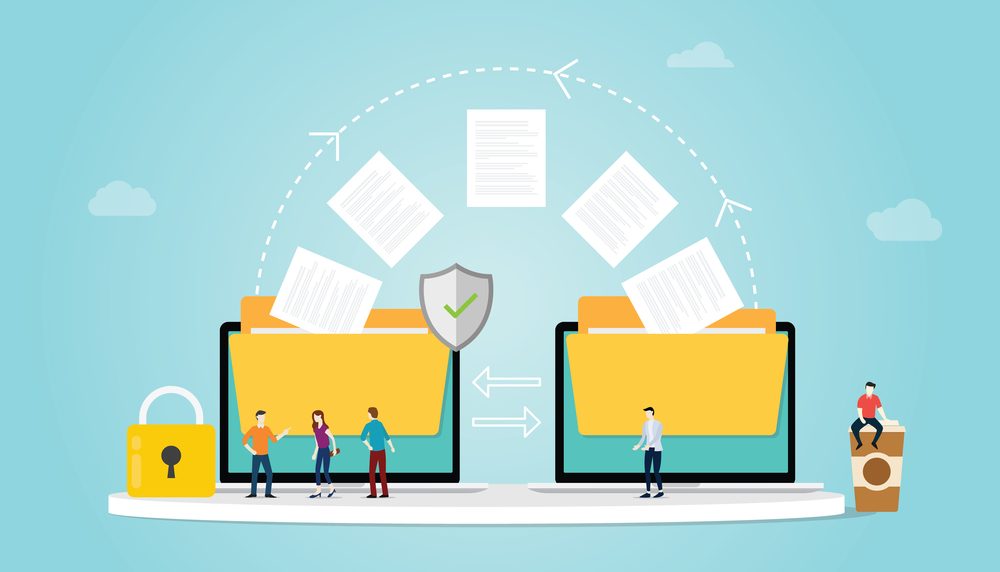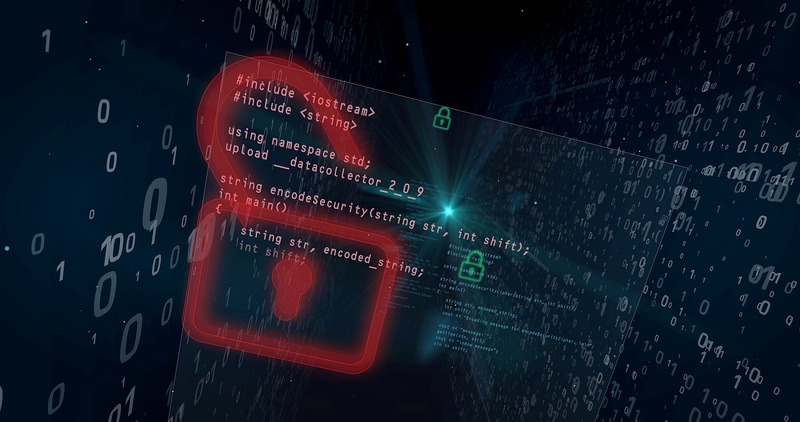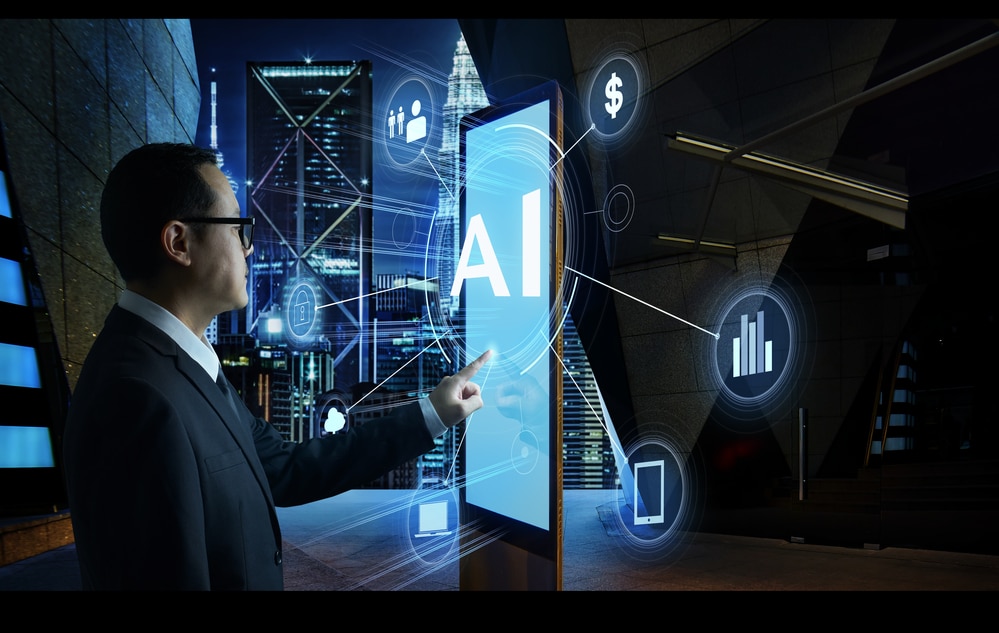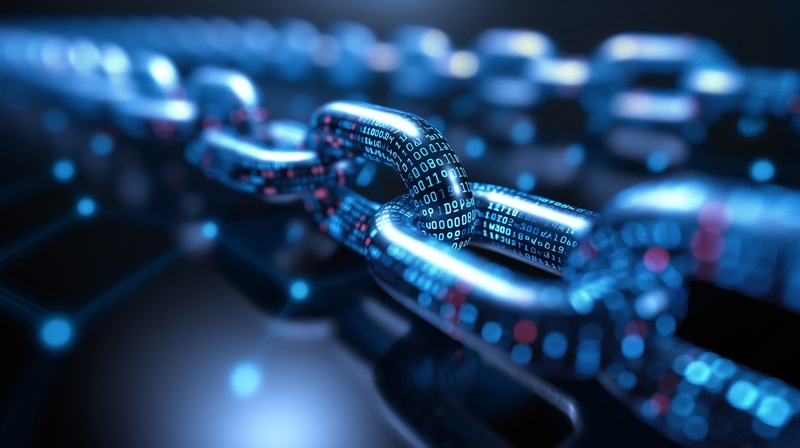
Building trust in telemetry data [Q&A]
With the increasing importance of observability in digital operations, businesses need to ensure the reliability and relevance of their telemetry data in order to maintain system and application performance, debug, troubleshoot, respond to incidents and keep their systems secure.
We spoke to Tucker Callaway, CEO of Mezmo, to discuss the strategic considerations and concerns enterprises face in managing and optimizing their telemetry data.

The future of managed file transfer (MFT) in the era of digital transformation [Q&A]
In a time when there's a greater need than ever for remote and online collaboration, the secure transfer of information and digitized records is a non-negotiable essential.
As more enterprise employees create and share increasing amounts of sensitive content, organizations need to be able to manage all of their sensitive data transfers between partners, customers, users and systems, have complete visibility and control over where data goes and ensure the highest levels of security.

Neglect of endpoints presents a major security gap for enterprises
A new report shows that endpoint platform security -- securing the hardware and firmware of PCs, laptops and printers -- is often overlooked, weakening cybersecurity posture for years to come.
The report from HP Wolf Security is based on a global study of over 800 IT and security decision-makers (ITSDMs) and over 6,000 work-from-anywhere (WFA) employees, it shows that platform security is a growing concern with 81 percent of ITSDMs agreeing that hardware and firmware security must become a priority to ensure attackers cannot exploit vulnerable devices.

How business function mapping can help align IT and cybersecurity with business priorities [Q&A]
In the modern business world, organizations face the ongoing challenge of aligning their IT and cybersecurity efforts with their business priorities.
The difficulty lies in understanding how your infrastructure supports your business's core functions. Without this understanding, prioritizing cybersecurity initiatives, managing vulnerabilities, and ensuring business continuity remains an uphill battle.

Enterprises struggle to meet data infrastructure demands
Internal IT teams are being pushed to the brink, balancing the demands of modern data management with limited resources according to a new report.
The study from DataStrike gathered insights from nearly 200 IT leaders and decision-makers, it finds that 55 percent of organizations rely solely on internal IT teams to manage their data infrastructure, with only a small fraction (19 percent) outsourcing these critical functions.

Containers are a weak link in supply chain security
The use of container images is growing fast thanks to their flexibility and convenience, but they can also represent a weak cybersecurity link in software supply chains.
A new report from NetRise looks at the scope and scale of the components and risks found across 70 of the most commonly downloaded Docker Hub container images.

The top five most-phished industries
New research reveals the top five industries most frequently targeted by specifically tailored phishing attacks using either the recipient's name, email address, phone number, or company name.
The study from Cofense using data drawn from the Cofense Intelligence product between Q3 2023 to Q3 2024 shows, unsurprisingly, that finance tops the list, accounting for 15.5 percent of all credential phishing emails where the product redacted information from the subject in order to safeguard the recipient.

Big spend on enterprise AI doesn't always deliver big returns
New research from Digitate reveals that while 92 percent of European organisations have implemented AI and automation, many lack a strategic approach to maximise the impact.
The study, based on a survey of 900 IT decision-makers in enterprises across Europe, finds that organisations have invested on average, €103.4M ($108M) in AI and automation over the last two years, with over half (59 percent) spending up to €295M ($309M). These investments have yielded significant returns, with 86 percent of organizations reporting a ROI averaging €154.7M ($162.4M).

Two-thirds of office workers bypass security protocols
Almost two-thirds of office workers admit they've prioritized productivity over safe cybersecurity practices -- 63 percent also own up to using a corporate device to access social media, messaging or entertainment sites/applications.
Research from identity and access management company CyberArk also shows that 80 percent access work applications from personal devices, with C-suite executives being among the worst offenders.

Over half of businesses have suffered regret over a software purchase
A new study from Capterra shows that 59 percent of global businesses regret at least one software purchase they've made in the last 18 months.
Despite this though, the survey of over 3,500 businesses finds 75 percent of organizations are planning to increase their software spending in 2025, with a significant focus on IT systems and artificial intelligence (AI).

Cyber exposure management in today's enterprise landscape [Q&A]
The cybersecurity landscape is more complex than ever and that means enterprises need to have a real-time picture of their exposure.
We spoke to Nadir Izrael, CTO and co-founder of Armis, to learn what this should look like and how security teams can evaluate and evolve their security programs to achieve more control over their asset landscape.

Addressing AI challenges for the enterprise [Q&A]
With more and more businesses keen to benefit from the possibilities that AI offers it seems like everyone is jumping on the bandwagon. But this raises a number of implementation and management challenges, especially now as enterprise AI workloads begin to scale.
We spoke to Tzvika Zaiffer, solutions director at Spot by NetApp, to discuss how these challenges can be addressed and the best practices that are emerging to ensure that implementations go smoothly.

Supply chain attacks up over 400 percent since 2021
A new report from cyber insurance provider Cowbell shows that supply chain attacks have increased by an astounding 431 percent since 2021.
It also shows that large enterprises (those with greater than $50 million revenue) are 2.5 times more likely to encounter cyber incidents. Manufacturing is the most vulnerable sector, driven by its reliance on automation and exposure to intellectual property threats.

HP offers enhanced protection for enterprise endpoints
The rise of remote and hybrid work has increased the risk of PCs being compromised by attackers with brief physical access, underscoring the need for protection and visibility into the integrity of devices throughout their lifetimes.
To combat this, HP is launching a new HP Enterprise Security Edition, a unique suite of capabilities designed to enhance the physical security of PC endpoints.

Attackers target holidays and weekends to catch enterprises off guard
Cyberattackers are targeting holidays and weekends to cause maximum disruption, yet many businesses remain underprepared outside of standard working hours.
A new report from Semperis, based on a survey of almost 1,000 cybersecurity professionals, shows that 86 percent of surveyed organizations in the US, UK, France and Germany that were attacked were targeted during a holiday or weekend.
